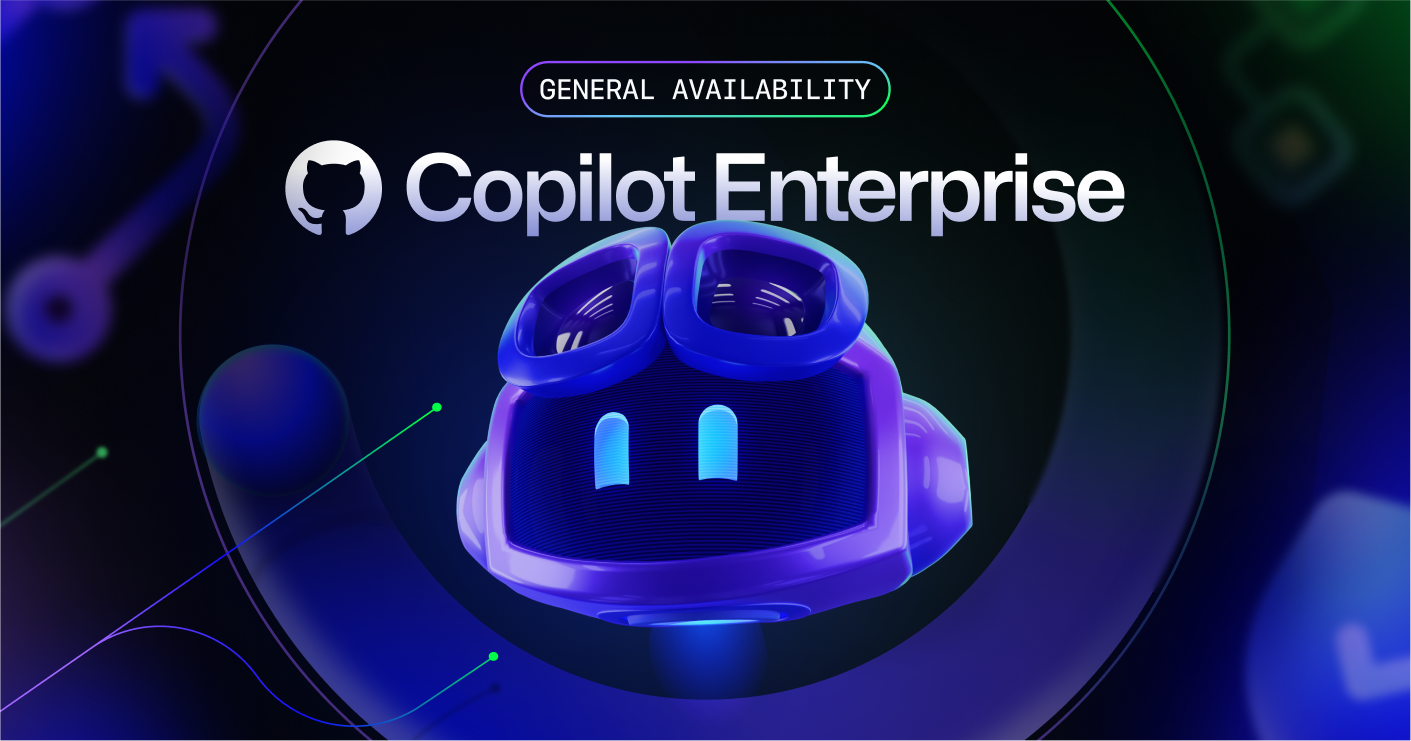Release
GitHub Copilot Enterprise is now generally available

GitHub Copilot Enterprise, our most advanced AI offering to date, is now generally available. With GitHub Copilot Enterprise, you can:
- Gain a deeper understanding of your organization’s unique codebase: Copilot Chat in GitHub.com understands your code and streamlines code navigation and comprehension for developers.
- Quickly access organizational knowledge and best practices: By letting developers attach knowledge bases (formerly known as docsets) to conversations, Copilot Chat in GitHub.com can answer questions based on your Markdown documentation stored on GitHub.
- Review pull requests faster: With pull request summaries generated by GitHub Copilot and the ability to chat about changes in a pull request, reviewers can get up to speed on a pull request quickly and spend more time providing valuable feedback.
Following on from our limited public beta, we are bringing the following improvements to GitHub Copilot Enterprise today to make Copilot even smarter:
- GitHub Copilot can now search Bing within chat conversations in GitHub.com to answer questions and find information outside of its general knowledge or your codebase (public beta).
- You can now access your knowledge bases (formerly known as docsets) from any Copilot Chat conversation in GitHub.com with the “Attach knowledge” button. Organization owners can create knowledge bases from an organization’s settings.
- GitHub Copilot knows about code as you browse, so you no longer have to be explicit about exactly what file, symbol or snippet you want to chat about.
- GitHub Copilot generates pull request summaries that are now more structured, with a “Summary” section that gives a high-level overview, and an “Outline” section that walks through the code.
- GitHub Copilot can now analyze and explain any pull request diff, making it easier for pull request reviewers to understand changes and share great feedback.
Ready to give Copilot Chat in GitHub.com a try? Here are some suggested prompts to get you started:
- Ask a question about recent events to trigger a Bing search: What updates were there in Node.js v20?
- Open GitHub Copilot Chat on a repository and ask a question about the repository: Where is the turnOn function defined?
- Open a file on GitHub.com and ask a question about that file: Draft unit test cases for each of the functions in the file I’m currently viewing